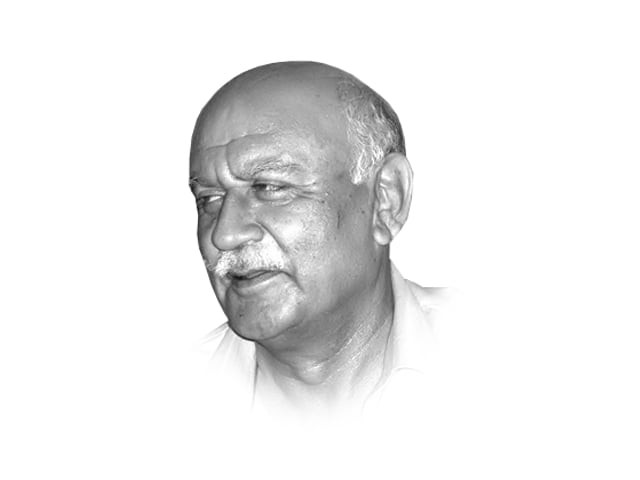What is terrorism and why does it figure here?
We must demand from them the security that they can give but must not take the law in our own hands

The writer is a retired brigadier and a former president of the Islamabad Policy Research Institute
Terrorism has also invariably linked to insurgencies. The reason is obvious; insurgents are invariably weaker than the state. Consequently, they find it easier to engage ‘soft’ targets rather than better equipped and trained security forces. However, it is in so-called democracies that terrorism became increasingly logical. Democracies depend on elections; for which wishes of the people become paramount. Consequently if, by terrorising hapless citizens, terrorists continue to make life insecure, citizens, led by the media, can pressure governments to negotiate from positions of weakness. We have two examples of this in our recent history. In 2009, when the military wanted to oust Fazlullah (self-styled Maulana) from Swat, media and the people wanted a negotiated settlement. The government gave in until, a few months later, Fazlullah demonstrated the kind of justice he would mete out, and the public whipping of a woman, finally united the nation in favour of a military operation.
Again, during this current regime, General Raheel Sharif and the military wanted decisive action but accepted the will of the people as expressed by their elected representatives. Once more, terrorist attacks in Karachi forced the hands of the elected representatives, the media, and the Taliban apologists. Subsequently, attacks, like the dastardly attack on the school in Peshawar, have served only to strengthen the people’s resolve. But what does this mean for the citizens, the common man? Though many might not be consciously aware of it, we have already changed. When terrorist attacks initially began, they spread fear in the hearts of the people. Institutions closed down with regularity, life would come to a standstill, sometimes for days together. Today, hours after an attack, people are back to work, children are in their classrooms, life goes on despite the Sword of Damocles hanging over our heads. But what it means is that the nature of war has changed. While we still depute our collective and individual security to the forces employed by the state and expect them to protect us, we are becoming increasingly conscious of the fact that their ability to protect us is vulnerable. And, therefore we, the peoples of this country, will also be casualties of war.
It brings to mind the Blitz on London in the early 1940s. Winston Churchill, then PM, spoke to the people to explain why he could not protect them. And the people responded to that call like pygmies who became giants overnight. Alas, we have no Pakistani Churchill. But our people have responded with no less courage. The likes of that young 15-year-old, almost forgotten hero, Aitzaz Hassan, who gave his life to prevent a suicide bomber from killing a large number of his fellow students, continue to inspire me. As does his unbelievable father, who stated, “I have one son left and will stand taller and prouder if he dies the way his brother did”, or words to that effect.
Stories of courage of teachers and students during the attack on the APS in Peshawar are amazing in their variation and dauntless courage. The many students like Malala who are undeterred by terrorists and challenge them daily by going to school to study; and the parents who stand tall, not merely by sending them but also by their support. We might not be well led, but our citizens, particularly our youth, are inspiring in their courage. In later articles, I intend to explain and expand on this fact that it is no longer possible for our security forces to ensure our safety as they were expected to do. I will also address what should still be expected of them and what we, the citizens and the media should be expected to do to help the security forces.
For now, suffice it to say that our life has changed and must remain in this state till this kind of threat is eliminated in its entirety, which will take time. Finally, there is a lot that we can do to help our security forces but please remember, it is their responsibility. We must demand from them the security that they can give but must not take the law in our own hands. Vigilantism can only add to the problems of law-enforcement agencies. Just like the peaceful protestors who, crossed a red line to become insurgents and enemies of the state, so too will vigilantes.
Published in The Express Tribune, September 8th, 2015.
Like Opinion & Editorial on Facebook, follow @ETOpEd on Twitter to receive all updates on all our daily pieces.















COMMENTS
Comments are moderated and generally will be posted if they are on-topic and not abusive.
For more information, please see our Comments FAQ